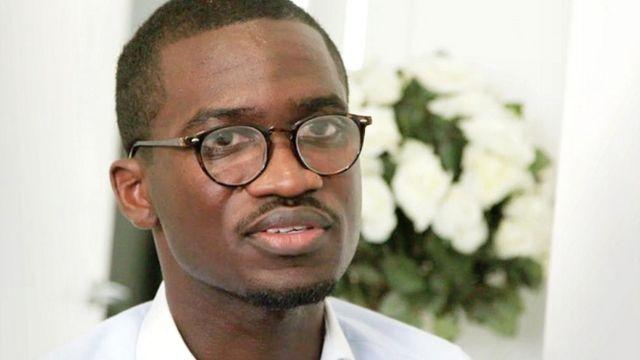Nigerian medical doctors and their counterparts from developing countries working in the United Kingdom have lamented exploitation in the course of their work.
This was revealed by BBC on Tuesday adding that an investigation proved that Nigerian doctors recruited by a British healthcare company are expected to work in private hospitals under conditions not allowed in the National Health Service (NHS).
While the British Medical Association (BMA) has described the situation as “shocking”, some of the hospitals denied the allegations as claimed by Nigerians.
BBC spoke to several foreign medical practitioners and one of them was a young Nigerian doctor, Augustine Enekwechi who worked at the private Nuffield Health Leeds Hospital in 2021.
Enekwechi said his working hours were extreme – on 24 hours a day for a week at a time. He claimed he was unable to leave the hospital grounds, adding that the working environment looked like “a prison.”

The doctor further said the challenges could pose health risks to patients in the hospital.
“I knew that working tired puts the patients at risk and puts myself also at risk, as well for litigation,” Enekwechi said. “I felt powerless… helpless, you know, constant stress and thinking something could go wrong.”
Nuffield Health refutes the allegations
Nuffield Health disputed those working hours, saying its doctors are offered regular breaks, time off between shifts, and the ability to swap shifts if needed. The company added that “the health and well-being of patients and hospital team members” is its priority.
Enekwechi was hired out to the Nuffield Health Leeds Hospital by a private company – NES Healthcare. It specialises in employing doctors from overseas, many from Nigeria, and using them as Resident Medical Officers (RMOs) – live-in doctors found mainly in the private sector.
He said he was elated when he first got the job that he hardly looked at the NES contract. He said the company excluded him from legislation that protects UK workers from excessive working hours – the Working Time Directive – and left him vulnerable to a range of punishing salary deductions.
He was, however, not the only person involved. The BMA and the front-line lobbying group the Doctors’ Association has given the BBC’s File on 4 and Newsnight exclusive access to the findings of a questionnaire put to 188 Resident Medical Officers. Most of the doctors were employed by NES but some were with other employers.
It found that 92% had been recruited from Africa and most – 81% – were from Nigeria. The majority complained about excessive working hours and unfair salary deductions.
WHO’s warning
For years now, the World Health Organization (WHO) has cautioned against the “active recruitment” of doctors and nurses from developing countries with severe shortages of medical personnel.
The WHO has assembled a list of 47 such countries – most of them in Africa. The UK government has incorporated that list into its own code of practice – calling it the “red list”. In effect, it makes Nigeria a no-go destination for British medical recruiters.
So it becomes a disturbing concern how Nigerian doctors are included in the UK. Meanwhile, the report from Nigerian doctors planning to still travel out of the country was troubling.
Nigeria’s doctors planning to travel
According to the report, BBC said in an exam hall in Lagos, it discovered hundreds of doctors queuing to take what was called a Professional and Linguistic Assessments Board test – or PLAB 1.
The paper was set by the General Medical Council (GMC) in London and the first step required by the British medical authorities to secure a licence to work in the UK.

The doctors explained they were attracted by the potential of higher salaries and better working conditions. The event was being overseen by staff from the British Council – an organisation sponsored by the Foreign Office.
GMC roles in other countries
The GMC also offers the exams in several other red-list countries – Ghana, Sudan, Pakistan and Bangladesh.
Both the GMC and British Council deny they are involved in “active recruitment” and say they’re simply helping provide a service for doctors wanting to come to the UK independently – something that is allowed under the guidelines.
In Enekwechi’s case, he was studying for the second part of those PLAB exams in the UK, when he was approached by NES Healthcare and later offered visa sponsorship and a potential job.
While it appeared to have been “active recruitment” – NES said it was not a recruitment agency and, as such, only engaged with doctors from overseas once they have already committed to practising in the UK.
But the Department of Health and Social Care disclosed that the UK code of practice did apply to NES – so the company was in breach of it.
Other doctor’s reactions
With respect to other African doctors recruited in this way by NES. They all had similar stories about what the terms and conditions of their contracts meant in reality, once they had been hired out to private UK hospitals.
Dr Femi Johnson
“It’s not humanly possible to do that every day for seven days,” said Dr Femi Johnson.
Dr Femi Johnson was sent to a different hospital like Enekwechi, but said he was also expected to work 14 to 16-hour days and then be on call overnight. “I was burnt out,” he said. “I was tired, I needed sleep. It’s not humanly possible to do that every day for seven days.”
But when he needed a break because he was too exhausted to continue, NES was entitled to deduct money from his salary. The company said that was to cover the cost of finding a replacement doctor, but Johnson said it left NES doctors in a terrible dilemma.
“In situations like that, I always make that internal discussion with my inner self – ‘Femi are you doing right by yourself and are you doing right by the patient?’ Unfortunately, I haven’t always been able to answer that question.”
Dr Jenny Vaughan
“This is a slave-type work,” said Vaughan from the Doctors’ Association
Some NES doctors have received help from Vaughan from the Doctors’ Association. She received many complaints from Resident Medical Officers and said the UK healthcare system has developed into two tiers – one for NHS doctors, the other for international recruits working in the private sector.
NHS doctors can only be scheduled to work up to 48 hours, and if they request, up to 72 hours a week.
“No doctor in the NHS does more than four nights consecutively because we know that it’s frankly not safe,” said Dr Vaughan. “This is a slave-type work with… excess hours, the like of which we thought had been gone 30 years ago. It is not acceptable for patients for patient-safety reasons. It is not acceptable for doctors.”
Emma Runswick
Emma Runswick of the BMA describes the situation as “so exploitative it beggars belief.”
According to Runswick, the whole thing was a “disgrace to UK medicine.”
“Our international colleagues have come a long way to the UK, and have found conditions so exploitative it beggars belief.”






